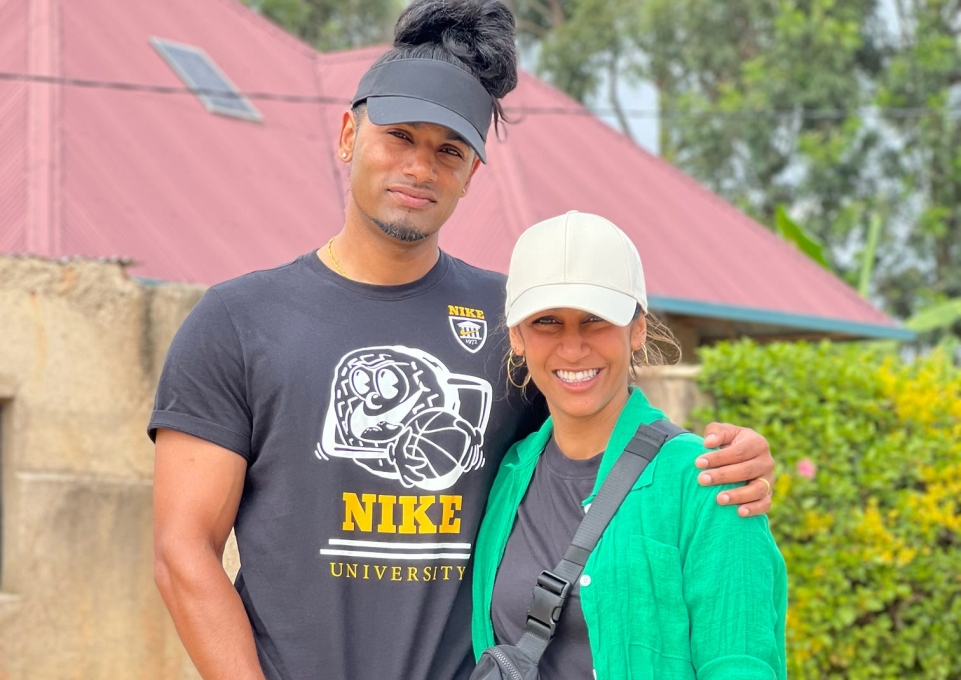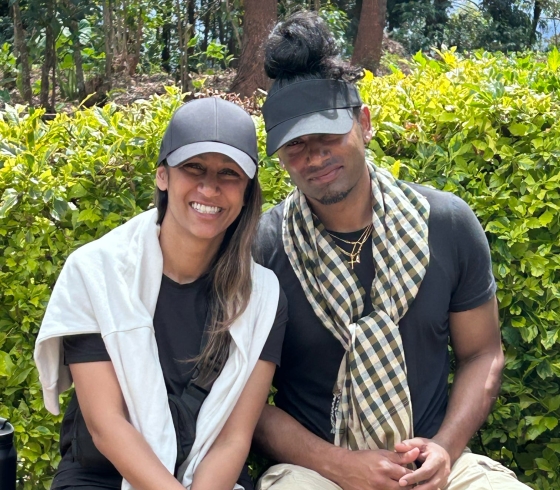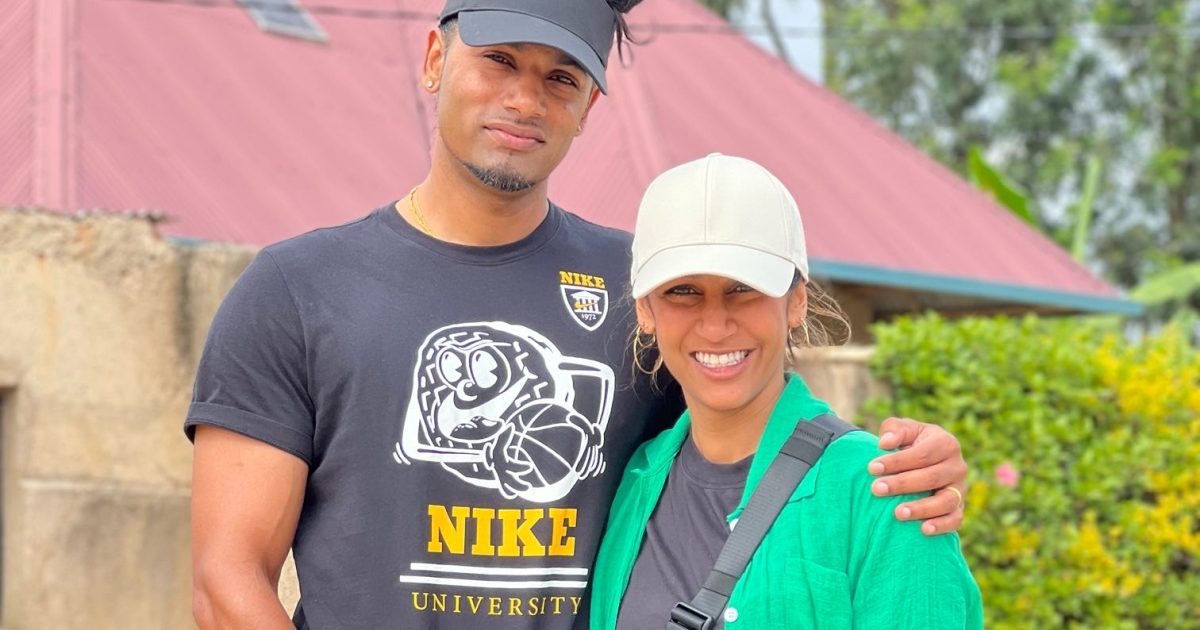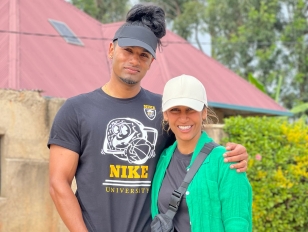
Since 2011, Buffalo State’s Anne Frank Project, founded and led by SUNY Distinguished Service Professor Drew Kahn, has brought more than 170 students to Rwanda for a study abroad program designed to build community, manage conflict, and explore identity by sharing stories stifled by oppression.
This unique program focuses on utilizing stories as the curricular platform in the classroom. By engaging with longstanding Rwandan partnerships, the delegation immerses itself in authentic experiences in schools, Genocide memorials, safaris, urban and rural villages, and local markets, as well as forms personal cultural connections.
The program is open to students in any major and has seen great participant variety. This summer’s delegation comprised students studying creative writing, criminal justice, English, international relations, political science, social work, speech-language pathology, and theater.
Additionally, many Buffalo State faculty and staff members from multiple departments—a former university photographer, professor Joaquin Carbonara, and Provost Amitra Wall, to name a few—have taken the trip. This year, married couple Anita and Gehan Senthinathan, both assistant professors at Buffalo State, joined the delegation to further research, inspire students, and make global connections. Anita is an assistant professor in the Speech-Language Pathology Department, while Gehan teaches for the Social and Psychological Foundations of Education and Psychology Departments.
“The Drs. Senthinathan brought multiple benefits to the experience,” Kahn said. “Their expertise was welcomed with open arms by our partners in Rwanda, and—more importantly—by our students who now had diverse sounding boards to reflect with on the ground and in the moment. Anita and Gehan are special people—their spirits wonderfully compliment the AFP vibe, and they contributed to our ‘village’ from the preparation class through the end of the trip. Not every faculty or staff member is built for a trip like this—it requires a sincere desire to be with students 24/7 in Rwanda. Anita and Gehan care about and enjoy our students.”
The Senthinathans gave us some of their time to talk about how the experience impacted them both professionally and personally.
Buffalo State University: What inspired you to go to Rwanda?
Anita Senthinathan: We’ve always had this vision of being involved in the global community. We have traveled and been involved in research and clinical activities in other countries, thanks to support from our departments, schools, and United University Professions. When we learned more about AFP and its mission, a natural collaboration started to develop. We thought it would be a great opportunity to learn. Neither of us had traveled with students before; we wanted to experience this.
Gehan Senthinathan: Part of Buffalo State’s vision and mission involves social responsibility, which pushes faculty to think outside the box. Within our first few years here, we had the opportunity to travel for research and service. We connected with Drew because he was doing similar things. A big challenge with research overseas is building connections as individuals—Drew had spent time building connections in Rwanda and was happy to share his network.

Gehan (left) and Anita Senthinathan in Rwanda.
BSU: Tell us about what you did while in Rwanda.
AS: We did all the things that are typically done on this trip and then thought, “How can we add our expertise to any of these discussions?” I had the opportunity to bring a speech-language pathology student with whom I had developed a research project prior to the trip. We developed a survey to find out if there was a pathway of care for individuals with communication or swallowing problems. We’re going to continue to collect and analyze data and hopefully continue that work in the future.
GS: We had the opportunity to branch out and engage in our own research and workshops. I did a talk on the neuroscience of trauma and trauma-informed care for Aegis Trust at a genocide memorial center in Kigali, and a talk on addiction at the Mental Health Hub, which involved clinicians, counselors, and physicians from across Africa.
AS: I was also able to connect with one of the major hospitals—King Faisal Hospital in Kigali—and learned that they have one speech-language pathologist in all of Rwanda and no SLP training programs. I conducted a talk and workshop on swallowing disorders for medical students, that I had done previously in Cambodia and Malaysia, but adapted for Rwandan culture.
Why is it important to adapt your work to a specific country?
AS: When working with a patient, you have to gain an understanding of their perspective—cultural considerations, personal values, goals, not just pushing your agenda based on your morals and values. It was important to adapt my workshop so that these future physicians can make recommendations for patients in the country.
GS: When I did the talk on addiction, for example, I had to get a handle on the specific substances people are abusing, which can involve psychoactive plants that aren’t available or accessible in other countries. There’s a creative aspect to it, which makes it challenging but interesting.
There’s great value in traveling, the experience of teaching and learning in different cultures, returning with a new lens, and sharing it with students.
How did the trip relate to the courses you teach at Buffalo State?
GS: In psychology classes, we talk about the theory of conflict resolution, but Rwanda is an experiment that has played out. Perpetrators and survivors live side-by-side like brothers and sisters. To see that in real life is quite amazing. They’ve literally taken psychology and applied it—it’s the best example of it I’ve ever seen.
AS: We know that there are limited resources in parts of the world in terms of access to services, tools, and technology. This is a way to motivate our students and future clinicians to provide support using skills and knowledge from all SLP coursework, in whatever way they can by figuring out the needs in that community and doing what they can to address them. I think our students are receptive to that.
How was this trip different from the ones you’ve taken in the past?
AS: We were experiencing it but also experiencing it through the students’ eyes. This experience was so much more enriching—for us and the students—because there were students from different disciplines. They would share with one another different things they learned throughout the trip. Students don’t often get that experience.
GS: We would gather to have discussions and hear student perspectives; observing the critical thinking from our students was very special.
How do you think your travel and global work impacts students?
GS: Part of our role as faculty is to inspire students to ask, “Why did you do that? Why is service such a big part of your job?” I think that when students see that faculty are willing to engage in service and that we get joy out of doing this work, they may become inspired to try. There’s great value in traveling, the experience of teaching and learning in different cultures, returning with a new lens, and sharing it with students.
AS: When I have had conversations with students, they’ve asked how they can do this work. They’re always amazed to see that you just need to put in a little bit of effort to make that connection and that kind of support can go a long way. We were intentional about having conversations with the students that were on the trip so they will hopefully be inspired to say, “What are the skills that I’m developing in the classroom and through my education at Buff State, and how can I apply them in another part of the world to make a difference?”



